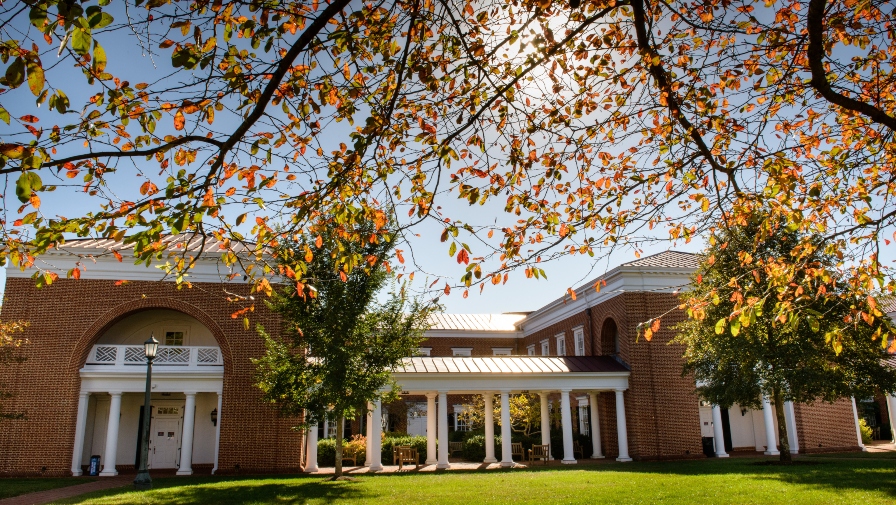
Darden Private Equity Conference: Booming Tech Investments and the Rise of SPACs
By Dave Hendrick
Software was already a hot sector for investment before the coronavirus pandemic. As much of the world shifted to software-reliant virtual settings during the pandemic, the boom continued apace.
Keynoting the University of Virginia Darden School of Business Private Equity Conference, a student-organized event led by the Darden Private Equity Club, Frontier Growth Capital Partner Joel Lanik (MBA ’05) offered a close-up snapshot of the software investing space, which is the primary focus of Frontier Growth Capital.
“The pandemic has shown that there is a lot of resiliency in the software market,” said Lanik, whose firm increasingly focuses on software as a service, or SaaS, companies.
The preceding year suggested the world could be at a tipping point in terms of technology adoption, and Frontier is focused on sectors such as business-to-business software driving automation and security compliance, said Lanik, who was in conversation with Darden Professor Susan Chaplinsky.
While investments in the increasingly popular space are getting more expensive, the returns appear to be justifying current multiples, and Lanik said one had to take a market-based approach to pricing.
After investing in a company, Frontier focuses on jumpstarting organic growth as well as working with firms on areas ranging from leadership and talent development to sales, marketing and pricing. Frontier often invests in founder-led firms with “a great product,” and brings a dedicated group of resources to lead those companies to growth and consistent and repeatable revenue. One bit of “low-hanging fruit” is often customer satisfaction and retention, Lanik said.
“People forget about retention as a lever for growth,” said Lanik. “How do you get your customer on-boarded, demonstrate value, and turn them into happy and satisfied fans?”
While much of the working world adapted quickly to the virtual landscape, Lanik said he was interested to see how the human element of the workplace persevered in the coming years. He wondered how culture development, teamwork and training would persist.
Lanik also offered career advice to the largely student audience, including tactical tips such as learning data visualization tools such as Power BI and Tableau to complement Excel aptitude, and bigger picture thoughts on how to differentiate oneself in a crowded field.
“Figure out what your core strengths are and think about how they help solve needs,” said Lanik. “Figure out how to sell your core attributes and align them with the core needs of the business.”
The Remarkable Growth of SPACs
The two-day conference also dove into a number of current events and hot topics, including diversity and inclusion in the private equity industry, talent acquisition and the red-hot world of special purpose acquisition companies (SPACs), entities that raise money via an IPO typically with the sole goal of eventually acquiring a private company, bringing the private company to the public markets.
Nearly $80 billion was raised through SPACs in 2020, and the trend has continued in 2021. At a panel discussion moderated by Darden Professor Matthew McBrady, experts in the thick of the sector offered input on the wildly popular financing vehicle.
Taylor Wright (MBA ’95), managing director and co-head of U.S. Equity Capital Markets at Barclays, said despite the newfound attention, SPACs were simply “a step along the continuum of transitioning companies from private ownership to public ownership.”
Said Wright, “It is a mechanism through which a private company can become a public company, and you can use certain techniques that are more associated with M&A to get to a deal that works for all parties.”
Regardless of the mechanism to get to public, Wright said the fact remained that a company needed to be ready to “perform and behave like a public company” if taken public via a SPAC deal.
Emil Michael, chair and CEO of DPCM Capital and former chief business officer at Uber, said he recently raised $300 million for his SPAC through what he described as a roadshow process. While there has been a sustained uptick in money flowing into the space, major investors can be picky, and want to know if the SPAC principals understand capital markets well enough to pull off a deal, Michael said.
“It comes down to do they like your background, the sectors you’re interested in and can you get a deal done,” said Michael.
While the performance of SPAC-led IPOs has been uneven, Michael said going public via a SPAC was on the radar for “any private tech company.”
While SPACs are not a new creation, Joshua Lynn, CFO of Healthcare Acquisition Corp., said the current popularity could be attributed to multiple factors, including a low-interest rate environment, a relative imbalance between large private companies and public companies — with more large private companies than ever — and “the credibility of the product.”
While SPACs were previously not particularly well-regarded by many in the finance industry, to see an increasing number exist and helmed by “reputable people,” has changed the outlook.
Johnson noted that Warburg Pincus and Bain Capital, respectively, had each recently raised SPACs, for example.
As interest in SPACs has grown, so has public scrutiny, with the Securities and Exchange Commission declaring shortly after the Darden Private Equity Conference that warrants issued by companies may have to be classified as liabilities.
The University of Virginia Darden School of Business prepares responsible global leaders through unparalleled transformational learning experiences. Darden’s graduate degree programs (MBA, MSBA and Ph.D.) and Executive Education & Lifelong Learning programs offered by the Darden School Foundation set the stage for a lifetime of career advancement and impact. Darden’s top-ranked faculty, renowned for teaching excellence, inspires and shapes modern business leadership worldwide through research, thought leadership and business publishing. Darden has Grounds in Charlottesville, Virginia, and the Washington, D.C., area and a global community that includes 18,000 alumni in 90 countries. Darden was established in 1955 at the University of Virginia, a top public university founded by Thomas Jefferson in 1819 in Charlottesville, Virginia.
Press Contact
Molly Mitchell
Senior Associate Director, Editorial and Media Relations
Darden School of Business
University of Virginia
MitchellM@darden.virginia.edu




